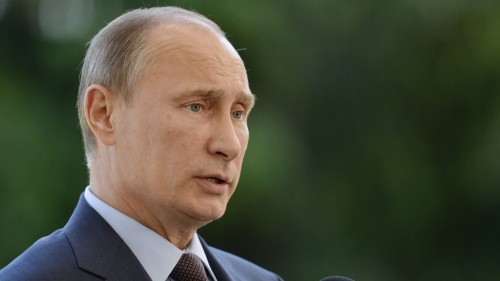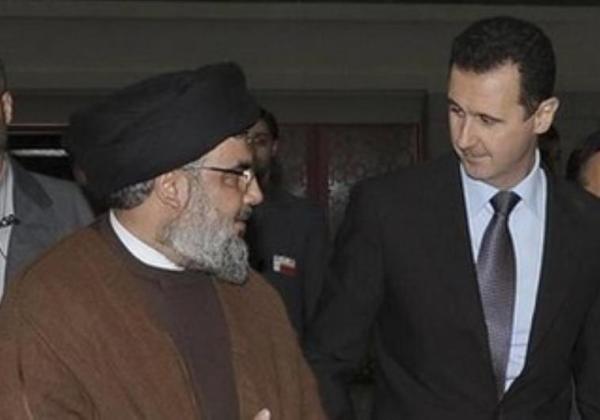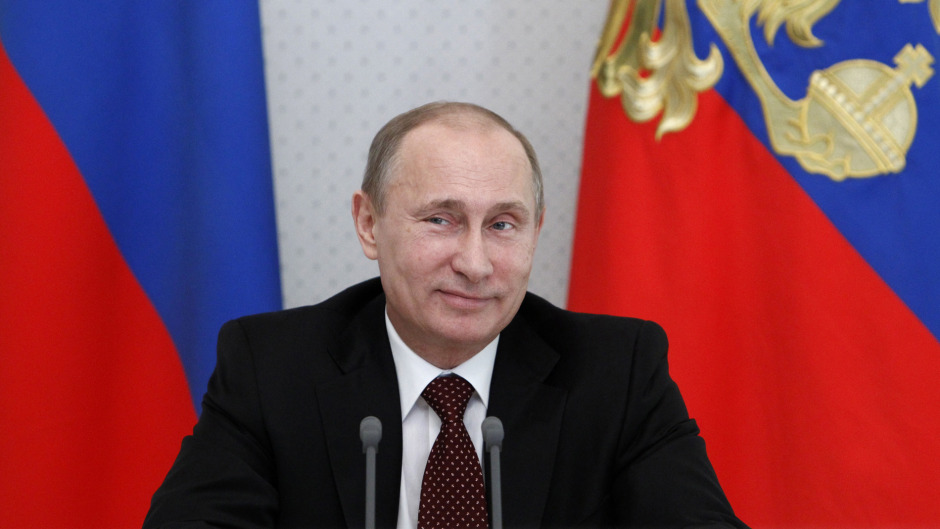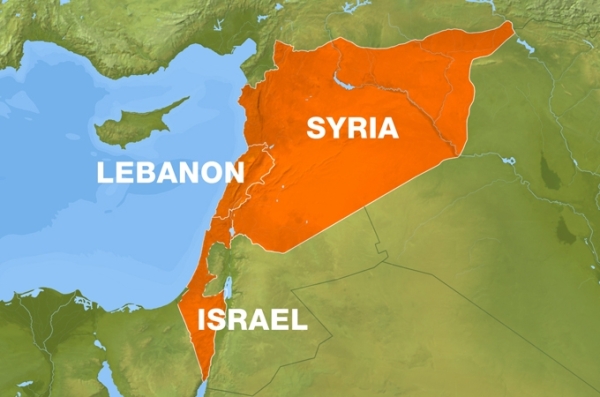Russia has taken hypocrisy to new cynical heights by having lodged a letter of complaint with United Nations Secretary General Ban Ki-moon over Israel’s “aggressive actions” in Syria.
On Dec. 7, Israeli aircraft reportedly struck Syrian military facilities near the international airport just outside Damascus and a site close to the Lebanese border. According to reports, Israel bombed stocks of made-in-Russia air defence missiles destined for Hezbollah bases in neighboring Lebanon.
The Israeli strikes were not unprecedented. In the past few years, the Israeli Air Force has hit convoys and warehouses in Syria and Lebanon bearing missiles to be delivered to Hezbollah, a Lebanese Shiite Islamic fundamentalist organization committed to Israel’s destruction.
Although the Israeli government did not claim credit for the latest raids, it’s no secret that Israel’s policy is to interdict shipments of advanced foreign-made weapons to Hezbollah, which fought a month-long war with Israel in the summer of 2006.
Which brings us to Russia, a staunch supporter of the Syrian Baathist regime, headed by President Bashar al-Assad.
Russia has a longstanding relationship with Syria. During the Communist era, which ended in 1991, the Soviet Union was Syria’s most important supplier of military equipment, from tanks to planes. Syria deployed these weapons in wars with Israel in 1967, 1973 and 1982.
On the diplomatic front, the Soviets backed their Syrian ally to the hilt.
Following the demise of communism, Russia continued to arm the Syrians, maintaining its status as Syria’s key external partner. Russia’s current president, Vladimir Putin, has zealously maintained that tradition. With Syria mired in a vicious civil war, a conflict that already has claimed the lives of some 200,000 Syrians, he has sent planeloads of weaponry to Assad’s totalitarian regime. And Putin has instructed Russian diplomats to veto a succession of United Nations resolutions critical of Syria.

Assad, meanwhile, continues to strengthen his bonds with Hezbollah, which has sent thousands of its fighters to Syria in support of the Syrian police state. In exchange, Syria supplies Hezbollah with state-of-the art missiles, many of which are manufactured in Russia.
Iran, Syria’s ally since the 1980 Iran-Iraq War, also plies Hezbollah with sophisticated weapons.
Russia is acutely aware of Syrian arms transfers to Hezbollah, but out of consideration to its vital geopolitical interests in Syria, Moscow turns a blind eye to the practice.
The Russians are entitled to their alliance with Syria, but they are most certainly not entitled to lambasting Israel when it takes vigorous self-defence measures to ensure that Russian missiles do not reach Hezbollah storehouses in Lebanon.
Let’s pause for a moment to reflect on Hezbollah. Judging by the fiery speeches of its leader, Hassan Nasrallah, Hezbollah is not only virulently anti-Israel, but disgustingly antisemitic. Hezbollah is not interested in a two-state solution to resolve Israel’s struggle with the Palestinians. Hezbollah wants Israel dead.
Far more than Hamas, Hezbollah is a formidable enemy that Israel cannot take for granted, disregard or underestimate. By all accounts, Hezbollah has an arsenal of more than 100,000 missiles. Which is precisely why Israel has destroyed Hezbollah convoys and Syrian hangars filled to the brim with Russian missiles.
It’s not rocket science, if you can forgive the pun.

Nevertheless, Israel’s most recent air raid in Syria targeting weapons bound for Hezbollah has upset the Russians. In its letter to Ban Ki-moon on Dec. 8, Russia, denouncing Israeli “aggression,” issued “an appeal to prevent the recurrence of such attacks in the future.”
And in a statement published on the website of the Russian foreign ministry, a spokesman said, “The use of force is unacceptable in interstate relations and deserves disapproval. It is important to prevent additional risks of further destabilization of the extremely tense situation in Syria and in the Middle East as a whole.”
Really.
Does Israel have an alternative to military force when Syria blatantly delivers missiles to Hezbollah? What is Russia doing about it? Nothing. Nothing whatsoever. What does Russia realistically expect Israel to do when two of its arch enemies, Syria and Hezbollah, are colluding to undermine its security?
In the meantime, Russia should reflect on its outlandish chutzpah, particularly in light of its aggressive actions in Crimea and in the eastern corner of Ukraine. Russia admittedly has paramount interests in both places. But since when is it permissible for Russia to interfere in sovereign Ukraine’s internal affairs by means of thinly-disguised proxies or, worse still, through invasions by stealth?
Russia has no business lecturing Israel on how to conduct itself in the face of Syrian and Hezbollah aggression. Israel should do whatever is necessary to protect itself against its next-door enemies.

